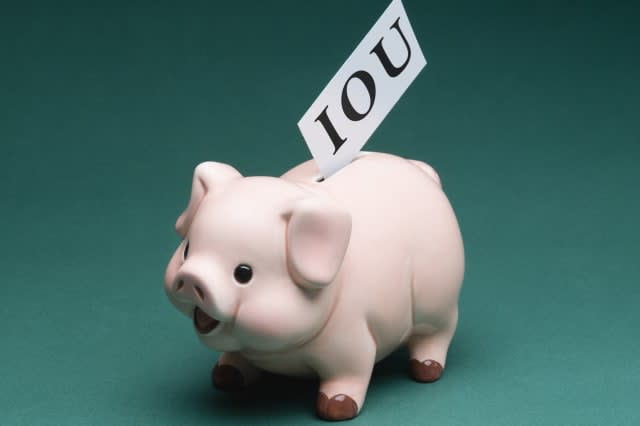One in five people will retire in the red

One in five people retiring this year will be in debt - and of those who owe money, the average is a staggering £18,800. They will spend the first three-and-a-half years of retirement paying off debts they built up during their working life, and their payments will eat into £224 a month of their pension income. It's the worst possible way to start retirement.
The figures were part of Prudential's Class of 2016 research. Shockingly the amount people owe when they retire is actually on its way down - and has fallen for the past four years. In 2012, the average retiree in debt owed £38,200.
The percentage of people reaching retirement with debts is not going anywhere though - and has been constant for the past five years. The biggest source of debt remains credit cards - some 51% of people who expect to retire in debt owe money on their cards, while 33% owe cash on their mortgage.
Stan Russell, a retirement expert at Prudential, said: "For many people, the switch from working life to retirement will see them getting used to living on a tighter budget and having to repay outstanding debts can only make this transition more difficult."
Within the overall statistics, there are some people in serious trouble. The researchers found that 14% of people expect to take seven years or more to pay off their debts, and 8% don't think they will ever be free from debt. Around the country, one in four Londoners and people in the South West expect to retire in debt - giving them the most debt headaches.
%VIRTUAL-ArticleSidebar-debt-advice%
What can you do?
Those who are on the brink of retirement have a few options. Pension freedoms give them the opportunity to raid their retirement savings in order to repay the debts immediately. However, this will eat into their pension pot, which means it will either produce a smaller monthly income or stretch for fewer years.
These freedoms may make the transition to retirement easier for those who have carried debts with them. However, there is a price for spending your pension savings, so it's essential that people do their research or get advice to understand the decision they are making.
Alternatively, some people may do a calculation of all their assets and decide the best solution is to free up equity in their property - either by downsizing or by using equity release. There are real consequences of both these options, and it's worth understanding all the costs involved - and talking them through with your family. However, if you have few other assets and would struggle to repay your debts on a pension income, it may be an option worth considering.
How much equity could you release?
Act now
For those with longer to retire, the best advice is often to re-double your efforts to repay your debts while you are still working. This may mean a change in lifestyle and expenditure: in some circumstances it will mean working a year or so later than you were originally intending to. These aren't particularly attractive prospects, but compared to paying debts out of a small, fixed income in retirement, they may offer a better solution.
In any case, Prudential suggests making a conscious effort to consider your debts in the years before retirement. Russell says: "A consultation with a professional financial adviser in the run up to retirement can help people to their get finances in the best possible shape for when the time comes to give up work."
"There is also plenty of free help, advice and guidance available on managing and paying off debts. The Government's Pension Wise service can be a good starting point for people looking for guidance when planning their retirement finances, and Citizens Advice can provide help to ensure debts don't become a long-term problem."




